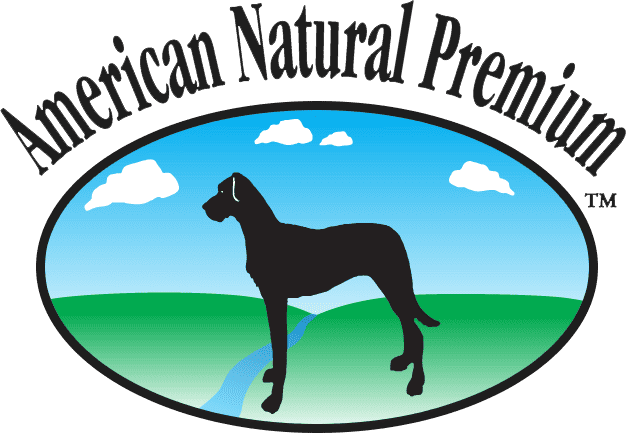Best Dog Food for Yorkies: Complete Nutrition Guide for Yorkshire Terriers

Yorkshire Terriers, affectionately known as Yorkies, pack tremendous personality into their tiny frames. These pint-sized companions, typically weighing just 4-7 pounds, have unique nutritional requirements that differ dramatically from larger breeds. Understanding what constitutes the best dog food for your Yorkie is essential for maintaining their health, supporting their luxurious coat, and fueling their surprisingly energetic nature throughout their 11-15 year lifespan.
Understanding the Yorkie’s Unique Nutritional Needs
Yorkies possess several characteristics that create specific dietary requirements. Their small size means they have fast metabolisms requiring calorie-dense foods to maintain energy levels and body weight. A Yorkie’s stomach can only hold small amounts of food, making nutrient density critically important – every bite must deliver maximum nutrition.
The breed’s signature silky, floor-length coat requires substantial nutritional support to maintain its texture and luster. High-quality proteins, essential fatty acids, and specific vitamins contribute to coat health that distinguishes show-quality Yorkies from those with inadequate nutrition.
Additionally, Yorkies are prone to hypoglycemia (low blood sugar), particularly as puppies or very small adults. This condition makes regular feeding schedules with appropriate caloric density essential. Their tiny jaws and small teeth also require appropriately sized kibble that they can comfortably chew without jaw strain or choking hazards.
Essential Nutritional Requirements for Yorkies
High-Quality Protein: Yorkies require 25-30% protein content from identifiable, premium sources. Protein supports their muscle mass, coat quality, and overall health. Look for named meat sources like chicken, lamb, fish, or duck as the first ingredient.
Moderate to High Fat Content: These energetic little dogs need 15-20% fat content to fuel their active lifestyles and support their luxurious coats. Fat provides concentrated energy essential for maintaining body weight in dogs with limited stomach capacity.
Small Kibble Size: Yorkie-specific or small breed formulas feature tiny kibble pieces appropriate for their small mouths, preventing choking and making eating comfortable.
Digestive Support: Many Yorkies have sensitive stomachs requiring easily digestible ingredients and potentially probiotics to support digestive health.
Joint Support: Despite their small size, Yorkies can develop joint issues, particularly patellar luxation. Ingredients supporting joint health benefit long-term mobility.
Best Protein Sources for Yorkies
Lamb: Provides high-quality protein with excellent digestibility, particularly beneficial for Yorkies with chicken or beef sensitivities. American Natural Premium’s Lamb Meal & Rice Recipe offers premium lamb protein in a format suitable for small breed nutritional needs.
Fish: Highly digestible with natural omega-3 fatty acids supporting coat health and reducing inflammation. American Natural Premium’s Fish Recipe with Zucchini & Carrots provides these benefits in an easily digestible formula.
Duck: For Yorkies requiring novel proteins or variety, American Natural Premium’s Duck Recipe with Butternut Squash offers unique protein with excellent palatability.
Chicken: While common and generally well-tolerated, some Yorkies develop chicken sensitivities requiring alternative proteins.
Age-Specific Nutritional Considerations
Puppies (0-12 months): Yorkie puppies need small breed puppy formulas with 28-32% protein and 18-22% fat to support rapid growth and high energy needs. Feed 3-4 small meals daily to prevent hypoglycemia, gradually transitioning to fewer meals as they mature.
Adults (1-8 years): Adult Yorkies typically thrive on small breed maintenance formulas with 25-28% protein and 15-18% fat. Active dogs may need higher fat content, while less active or spayed/neutered dogs may need calorie adjustments.
Seniors (8+ years): Older Yorkies benefit from easily digestible proteins, joint-supporting ingredients, and potentially adjusted calories based on activity changes. Many senior Yorkies remain quite active and don’t need significant calorie reductions.
Managing Common Health Issues Through Nutrition
Hypoglycemia Prevention: Feed consistent meals at regular times. Small, frequent meals prevent blood sugar crashes. Keep high-calorie supplements available for emergencies.
Dental Health: Yorkies are prone to dental disease due to crowded teeth in small mouths. While dry kibble provides some mechanical cleaning, regular dental care remains essential. Choose kibble sizes that encourage chewing rather than swallowing whole.
Patellar Luxation: Maintaining ideal body weight minimizes stress on knee joints prone to this condition. Avoid overfeeding despite their appealing begging behaviors.
Tracheal Collapse: This condition affecting small breeds makes maintaining healthy weight crucial, as obesity worsens respiratory symptoms.
Portosystemic Shunt: Some Yorkies have liver shunts requiring specialized diets. Work with veterinarians to manage this condition through appropriate nutrition.
Best Food for Yorkies with Allergies
Food allergies are relatively common in Yorkshire Terriers, typically manifesting through skin problems, ear infections, and digestive issues. Identifying the best food for Yorkies with allergies requires understanding their specific triggers and selecting appropriate alternatives.
Common Yorkie Allergens: Yorkies frequently develop sensitivities to chicken, beef, dairy, wheat, corn, and soy – ingredients prevalent in many commercial dog foods. Symptoms include persistent itching (particularly affecting paws, face, and ears), chronic ear infections, hot spots, hair loss, and digestive upset.
Novel Protein Approach: The best food for Yorkies with allergies features proteins they haven’t regularly consumed. American Natural Premium’s Lamb Meal & Rice Recipe provides novel protein for many chicken-allergic Yorkies while delivering nutrition appropriate for small breeds.
Fish-Based Benefits: Fish proteins are highly digestible with anti-inflammatory omega-3 fatty acids actively reducing allergic inflammation. American Natural Premium’s Fish Recipe with Zucchini & Carrots offers therapeutic benefits ideal for allergic Yorkies while supporting their coat health.
Limited Ingredient Formulas: The best food for Yorkies with allergies contains minimal ingredients, reducing exposure to potential triggers. American Natural Premium’s Sensitive Care provides simplified nutrition with probiotics supporting digestive and immune health.
Elimination Diet Protocol: When identifying allergens, feed single-protein diets for 8-12 weeks with absolutely no treats, table scraps, or flavored items. Yorkies’ small size means even tiny amounts of allergens can trigger reactions, making strict adherence essential.
Grain Considerations: While grain allergies are less common than protein allergies, some Yorkies benefit from grain-free formulas. However, most tolerate quality grains like rice or oats well.
Coat Support During Allergy Management: Allergies often compromise coat quality. Ensure hypoallergenic diets still provide adequate omega fatty acids and proteins supporting their signature silky coat.
Feeding Guidelines for Yorkies
Yorkies typically eat 1/4 to 1/2 cup of high-quality dry food daily, divided into 2-3 meals. However, individual needs vary dramatically based on age, activity level, metabolism, and whether they’re intact or altered.
Portion Control: Measure food carefully using actual measuring cups rather than estimating. Yorkies’ tiny size means small overfeeding amounts create significant caloric excess.
Meal Timing: Consistent feeding times prevent hypoglycemia and support digestive regularity. Many Yorkies do best with breakfast, lunch, and dinner rather than just two meals daily.
Treat Management: Treats should comprise no more than 10% of daily calories. Given Yorkies’ small size, this means very limited treats. Choose small, low-calorie options or use pieces of kibble as training rewards.
Fresh Water: Always provide fresh water, though monitor intake as excessive drinking can indicate health problems.
Special Considerations for Yorkies
Picky Eating: Yorkies can be notoriously selective eaters. Establish consistent feeding routines rather than free-feeding or constantly changing foods. Remove uneaten food after 20 minutes to encourage meal completion.
Temperature Sensitivity: Their small size and fine coat make Yorkies sensitive to temperature extremes. Cold stress increases caloric needs while heat reduces appetite.
Travel Feeding: When traveling, bring familiar food to prevent digestive upset. Yorkies’ small portions make packing adequate food supplies manageable.
Socialization Around Food: Some Yorkies develop food guarding. Establish healthy feeding routines from puppyhood, hand-feeding occasionally and practicing positive associations with people near food bowls.
Monitoring Your Yorkie’s Body Condition
You should easily feel your Yorkie’s ribs without pressing hard, though they shouldn’t be visibly prominent. When viewed from above, they should have a slight waist tuck behind the ribs. From the side, the belly should tuck up toward the hind legs.
Yorkies’ long coats can hide weight changes, making regular hands-on assessment essential. Weigh monthly on accurate scales, as even half-pound changes represent significant percentages of their body weight.
Transitioning Foods
When changing foods, transition gradually over 10-14 days, mixing increasing amounts of new food with decreasing amounts of old food. Yorkies’ sensitive stomachs make gradual transitions particularly important.
Supplements and Additions
High-quality commercial foods typically provide complete nutrition, but some Yorkies benefit from specific supplements:
Omega-3 Fatty Acids: Additional fish oil supports coat health and reduces inflammation.
Probiotics: Support digestive health, particularly beneficial during stress or dietary changes.
Joint Supplements: Glucosamine and chondroitin support joint health, especially important for Yorkies with patellar luxation.
Always consult veterinarians before adding supplements to ensure appropriateness and proper dosing for tiny dogs.
The best dog food for your Yorkie provides nutrient-dense, high-quality nutrition in small, manageable portions that support their fast metabolism, maintain their luxurious coat, and fuel their spirited personality. Whether choosing lamb, fish, duck, or chicken-based formulas, focus on foods specifically formulated for small breeds with appropriate kibble sizes and nutritional profiles. For Yorkies with allergies, novel protein sources and limited ingredient formulas provide relief while maintaining optimal nutrition. With proper feeding tailored to their unique needs, these tiny companions can thrive throughout their long lives, maintaining the beauty, energy, and charm that makes Yorkshire Terriers such beloved companions.

